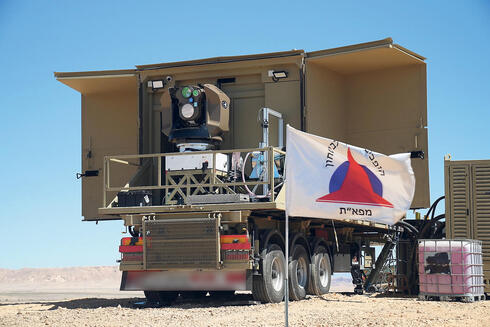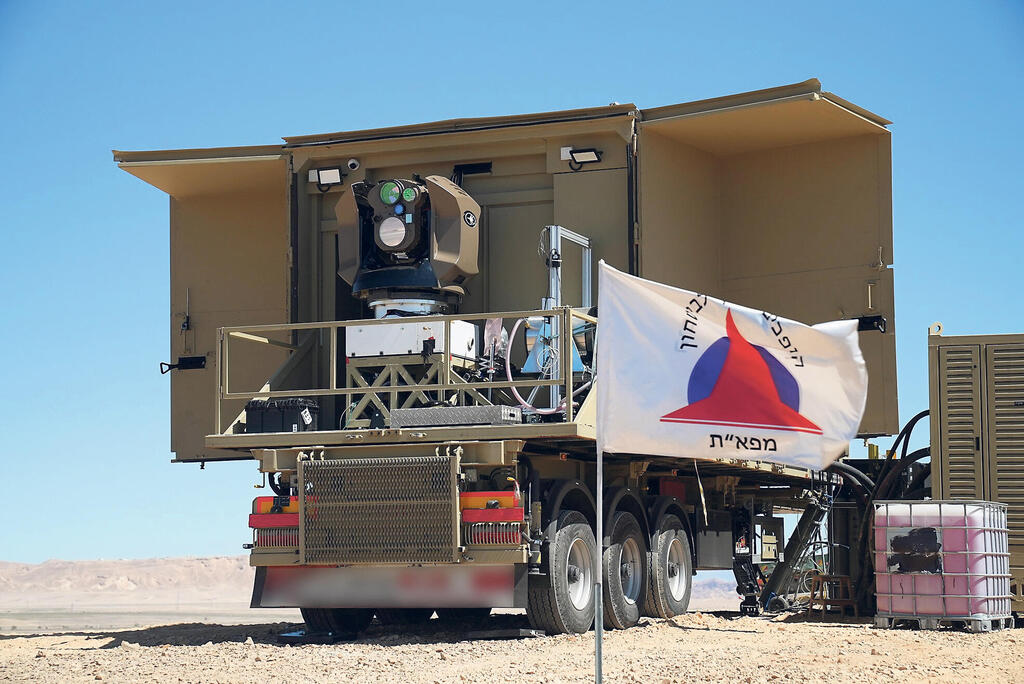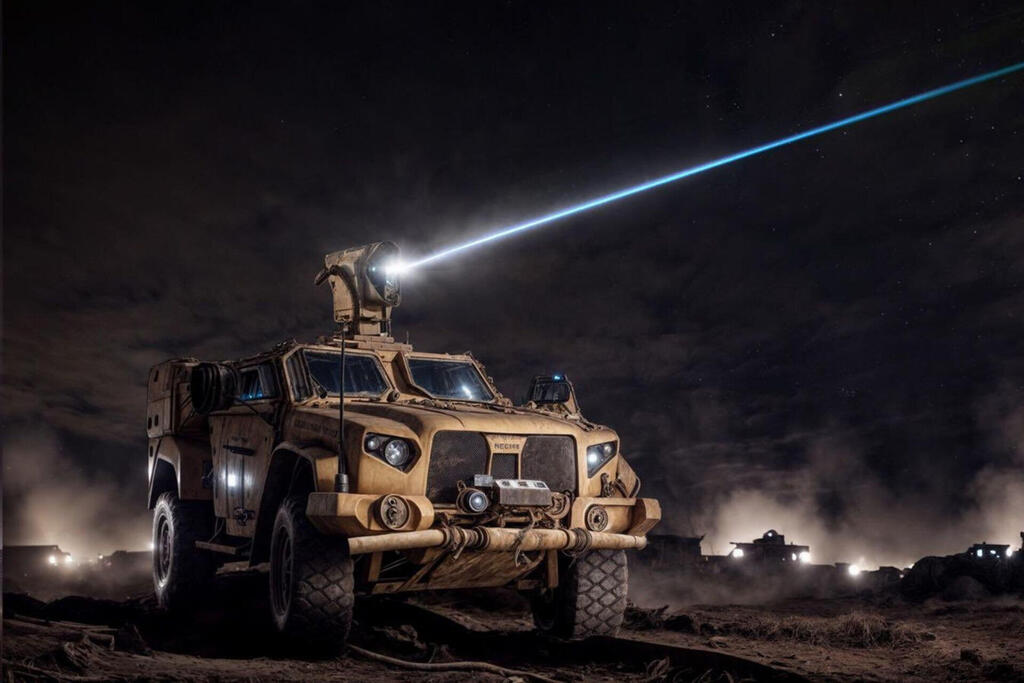
Israel’s laser defense system nears operational status amid intensified rocket barrages
As Hezbollah increases its attacks, Israel prepares to deploy the Iron Beam developed by Rafael. The system is expected to become operational within months, and it should dramatically streamline the interception of rockets and UAVs launched at Israel.
Fighting on the northern border is intensifying, and the rocket fire targeting Israel is increasing. The IDF's operations in villages near the northern border are focused on uncovering and destroying Hezbollah's infrastructure, with the support of artillery and aerial strikes. These efforts are being carried out alongside continued air force attacks on Hezbollah weapons depots and headquarters throughout Lebanon, including in the Dahiya district of Beirut.
Defense Minister Yoav Gallant visited the Northern Command on Tuesday to stay updated on the army's progress in southern Lebanon. Two weeks after the Israeli Air Force killed Hezbollah Secretary General Hassan Nasrallah in an airstrike in Dahiya, Gallant announced on Tuesday that Nasrallah's successor, Hashem Safieddine, was also likely killed in an airstrike on the bunker where he was staying last weekend. According to Gallant, "Hezbollah is an organization without leadership; Nasrallah has been eliminated, and likely his replacement as well. This is having a dramatic impact on Hezbollah, causing fear, panic, and an erosion of its capabilities like never before."
However, shortly before Gallant outlined the IDF's operational achievements in the north, Hezbollah launched a heavy barrage of over 100 rockets at the Haifa regions and many towns in the Western Galilee. Damage was reported in several areas, mostly from fragments of intercepted rockets. According to the IDF, most of the rockets were intercepted by the Iron Dome defense system.
Advanced laser systems in development
While most of the rockets launched by Hezbollah at cities in the Haifa region were intercepted by Iron Dome, the defense establishment is eagerly awaiting the operational deployment of the new laser-based defense system Iron Beam developed by Rafael. This system is expected to become operational within months, and it should dramatically streamline the interception of rockets and UAVs launched at Israel.
Amid progress in Israel's laser defense technology, Rafael plans to showcase its new Lite Beam system at the AUSA defense exhibition in Washington, D.C., next week. This mobile laser system, which provides protection for maneuvering forces against drones and suicide UAVs. In addition to its laser sight, the system includes a 30mm Samson cannon, which serves as a complementary interception solution when laser targeting is not feasible.
The larger laser-based Iron Beam system is expected to intercept short-range threats and will initially be integrated into the Iron Dome system. Once implemented, the system will determine whether to intercept threats using a powerful laser beam or a missile, depending on the situation. However, the laser system's effectiveness may be limited in certain weather conditions, such as cloudiness, fog, or dust storms.
A special grant of approximately $8.7 billion from U.S. President Joe Biden is intended to support Israel’s efforts to expand its interceptor capabilities and stockpile weapons. This grant will also accelerate the development of Rafael’s laser-based defense systems. Elbit Systems is also involved in developing airborne laser technology, which could enable fighter jets and unmanned aircraft to intercept threats far from Israel's borders. IAI (Israel Aerospace Industries) is advancing its own laser program, which has made significant progress over the past year.
In addition to Rafael's upcoming presentation in Washington, the company plans to showcase improved capabilities in its Trophy Active Protection System (APS) for tanks and APCs (armored personnel carriers). This system, already in operational use by the IDF, provides protection against anti-tank missiles and rockets launched at maneuvering forces. Rafael reports that variants of the Trophy system have been adapted for various military platforms worldwide, offering perimeter protection to teams operating in conflict zones such as Gaza and Lebanon.
Factories operating under fire
The frequent rocket barrages from Lebanon have caused damage to several factories in northern Israel in recent days. Roy Israeli, northern region manager of the Manufacturers Association of Israel, told Calcalist that despite damage, some of which was caused by Iron Dome interception fragments, production activity in those factories continues as usual.
According to the association, the expanding range of rocket fire and the increase in launches have not significantly affected worker attendance rates. However, some northern manufacturers, even those located tens of kilometers from the border with Lebanon, have reported inquiries from international customers asking for guarantees about future supply capabilities, especially in the event of an escalation in the war and increased rocket fire.
Ron Tomer, President of the Manufacturers' Association, noted that manufacturers are facing demands to increase production and stockpile goods for up to six months. Additionally, they are expanding their supply of raw materials, which could significantly raise financing costs for manufacturers. This increase in costs is a consequence of their efforts to maintain business relationships with global customers.















